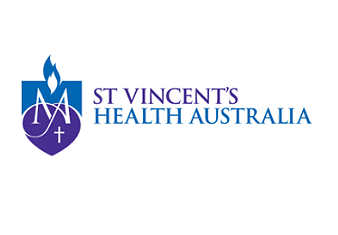Role
Industry
Solutions
Products

One of the largest hospitals in New South Wales, St Vincent’s Hospital (SVH) Sydney, was manually managing a fleet of more than 150 vehicles, and over 400 users.
The organisation’s fleet was primarily managed using a paper-based booking system and excel spreadsheets. Within this, they recorded vehicle purchases, fuel costs, and all other associated vehicle costs, which were then allocated to each department. This process made it difficult to meet SVH’s requirements of providing 24x7 access and streamlining operations.
SVH required a solution which would enable it to streamline user access to vehicles, while at the same time measure, monitor, and manage the vehicle fleet; and through that detect under or over-utilised vehicles. In order to facilitate access and improve utilisation, SVH also needed the ability to securely manage vehicle keys on a 24-hour basis. This requirement meant that SVH needed an integrated booking and dispatch system in place, allowing fleet managers to track all their vehicles, monitor usage, and provide users with the ability to easily access keys anytime, day or night.
In order to achieve its goals and following a thorough market review, SVH implemented Smartrak’s intuitive and leading-edge solution, integrating the electronic KeyMaster key management platform. Smartrak’s comprehensive and flexible Pool Booking software allowed SVH to manage and process vehicle bookings, enabling the organisation to manage booking and better understand their booking requirements.
The move from paper-based pool management to Smartrak’s integrated KeyMaster cabinet allowed SVH to have complete access to fleet vehicles, regardless of day or time. By enabling 24x7 accessibility of pool vehicle keys, St Vincent's Hospital streamlined their vehicle reservation process, reduced administrative overhead, and provided greater user access across the organisation. This change substantially reduced the administrative costs associated with vehicle key management and the people dependency that entailed.
SVH reduced its vehicle count by 20 vehicles, representing a 13% decrease in its fleet
Bob Morris, Transport and Fleet Manager for SVH, stated: “Smartrak were selected due to their readiness to customise the system to meet the hospital’s specific requirements. Compared to what we had seen, the Smartrak system appeared to be years ahead of the competition and was very well priced, especially the Key Cabinets.”
He went on to say: “The software brings greater structure and discipline to the process of vehicle bookings, enabling us to better understand and manage booking requirements, identify patterns of vehicle usage, and manage all aspects of our vehicle costs.”
Once Smartrak’s integrated solution was implemented, SVH realised almost immediate benefits. One such example was normalising vehicle usage across the fleet by eliminating excessive use of individual vehicles and spreading use across the fleet. By balancing vehicle utilisation, SVH was able to eliminate situations where some cars travelled significant kilometres while others were rarely used. These changes enabled SVH management to clearly identify underutilised vehicles and provided right-sizing opportunities for the fleet while delivering better service and vehicle availability to users.
Within the first two years of using the Smartrak system, SVH reduced its vehicle count by 20 vehicles, representing a 13% decrease in its fleet, and through this gained a substantial saving in the associated vehicle operating expenditure (approximately $160,000 per annum). Home garaging arrangements have been tightened to discourage non-essential use of vehicles and the Fringe Benefits Tax (FBT) reporting through the system has freed up significant staff hours.
"We should have done this a lot sooner"
“SVH is extremely pleased with the implementation of the system, and the results and savings have been profound. Smartrak’s willingness to meet our requirements and the effectiveness of the system and its Key Cabinets is more than we could have hoped for. There was initial resistance to changing to a new system, but the subsequent feedback has been very positive, and we should have done this a lot sooner,” stated Bob Morris.